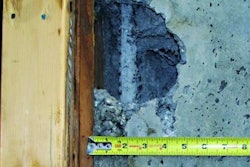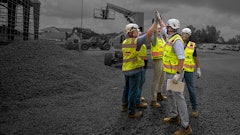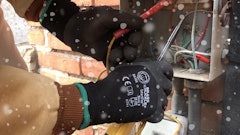The following op-ed from ARTBA President Pete Ruane appeared in Roll Call.
The backdrop to the current political fireworks on the nation's debt is a sobering reality: America is in the midst of a national jobs emergency.
A Labor Department employment report showing only 18,000 jobs were created in June landed like a smart bomb on Capitol Hill. More fuel was added to the fire July 11 when the U.S. Chamber of Commerce released what it called the "brutal" findings of its Small Business Outlook Survey. The Harris Interactive survey of more than 1,400 small-business owners found 64 percent have no plans to hire in the next year. "Economic uncertainty" was the primary obstacle cited.
"Hard times" stories reverberate throughout the construction industry, currently reeling with a 15.6 percent unemployment rate.
An American Road & Transportation Builders Association survey of transportation contractors in July found more than half were operating below 75 percent capacity. Some reported the highway and bridge construction market is the worst they've experienced in their lifetimes.
But when it comes to addressing the nation's overwhelming infrastructure needs, Congress and the president "have kicked the can down the road" so many times they could be charged with "can abuse."
A public policy solution that is a surefire job creator and could help get America's economic engine roaring again has been staring them right in the face for more than 21 months: passage of the overdue federal highway and transit investment bill.
The National Commission on Fiscal Responsibility and Reform, chaired by Erskine Bowles and former Sen. Alan Simpson (R-Wyo.), outlined three ways to solve the underinvestment problem as part of a larger debt and deficit solution.
First, commissioners said, federal transportation investments should no longer be funded through budget "gimmicks." Second, they said, Congress should enact reforms mandating dedicated trust fund revenues be invested in "the most pressing infrastructure needs." And third, they said, make funding those needs with dedicated revenue mandatory. The commission also recommended increasing revenues to the Highway Trust Fund.
User-fee financing of our transportation investments has served the nation well for more than a half-century. And just because the political parties have ruined the federal motor fuels excise tax as a viable funding mechanism, using it as a prop for the sake of partisan posturing, doesn't mean user fees shouldn't be employed.
A new solution could include the implementation of a new federal freight user fee to help finance transportation infrastructure investments and leverage private capital, particularly for the "critical commerce corridors" that the nation so desperately needs to compete. A Pricewaterhouse Coopers proposal outlined a "highway transportation services tax" that is similar to the current federal excise levied on air cargo. It deserves a good, hard look from every Member of Congress.
Virtually everything that Americans wear, eat and use every day comes to them via the surface transportation system. Strengthening and improving this system will not only help alleviate the national unemployment emergency by creating jobs but also lead to expanded long-term economic productivity and international competitiveness — both outcomes essential to restoring balance to the federal budget.
T. Peter Ruane is president and CEO of the American Road & Transportation Builders Association.

















